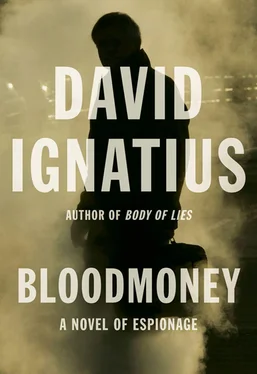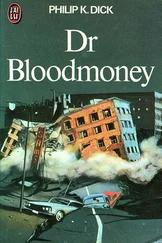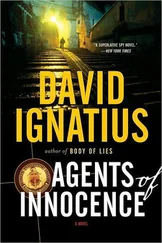David Ignatius - Bloodmoney
Здесь есть возможность читать онлайн «David Ignatius - Bloodmoney» весь текст электронной книги совершенно бесплатно (целиком полную версию без сокращений). В некоторых случаях можно слушать аудио, скачать через торрент в формате fb2 и присутствует краткое содержание. Жанр: Шпионский детектив, на английском языке. Описание произведения, (предисловие) а так же отзывы посетителей доступны на портале библиотеки ЛибКат.
- Название:Bloodmoney
- Автор:
- Жанр:
- Год:неизвестен
- ISBN:нет данных
- Рейтинг книги:4 / 5. Голосов: 1
-
Избранное:Добавить в избранное
- Отзывы:
-
Ваша оценка:
- 80
- 1
- 2
- 3
- 4
- 5
Bloodmoney: краткое содержание, описание и аннотация
Предлагаем к чтению аннотацию, описание, краткое содержание или предисловие (зависит от того, что написал сам автор книги «Bloodmoney»). Если вы не нашли необходимую информацию о книге — напишите в комментариях, мы постараемся отыскать её.
Bloodmoney — читать онлайн бесплатно полную книгу (весь текст) целиком
Ниже представлен текст книги, разбитый по страницам. Система сохранения места последней прочитанной страницы, позволяет с удобством читать онлайн бесплатно книгу «Bloodmoney», без необходимости каждый раз заново искать на чём Вы остановились. Поставьте закладку, и сможете в любой момент перейти на страницу, на которой закончили чтение.
Интервал:
Закладка:
It was decided that the base for this new network should be far from Washington. Consideration was given to Denver, San Francisco, Las Vegas and even Charleston, West Virginia-which just happened to be the hometown of a key member of the congressional leadership. But finally a decision was made to locate the hub in Los Angeles, in a staggeringly ordinary office building in the San Fernando Valley, heretofore famous as the home of America’s pornographic movie industry. The building they chose had been the headquarters of a mortgage-lending company that had gone bust before the agency bought it through a series of cutouts.
To keep an eye on this experiment, Headquarters selected one of its crustiest old secret warriors, a man named Cyril Hoffman. He was the associate deputy director, the all-but-invisible number three position in the agency, and a man famous for keeping his head down. Hoffman was an eccentric who liked to collect first editions of British nineteenth-century novels, and whose iPod playlist featured modern operas by Philip Glass. He had a habit of humming when he was on the telephone and, occasionally, when he was in meetings. People who didn’t know Hoffman thought that he was a crank. That was a mistake.
Sophie Marx joined up because she was bored with her fancy job at Headquarters-and decided that she liked the iconoclastic man who had been chosen to run the new organization. His name was Jeffrey Gertz, and he was already something of a legend among younger officers.
Gertz had started his ascent in Morocco, making himself indispensable to the crown prince who later became king. Then he had gone into Baghdad in 2002, before the war, under paper-thin cover as an Eastern European diplomat. He had been a one-man station-planting listening devices, affixing infrared beacons to guide the bombers, recruiting and running agents. He had operated like it was 1943 in occupied France and he was working for the OSS. Young officers who were in the loop began trading stories about him: Have you heard what Gertz has done now?
The best of it was that he rarely asked permission. As the invasion of Iraq was about to begin, Gertz requested “lethal authority” from Headquarters-meaning that he could assassinate Iraqi targets of opportunity. The seventh floor was in a dither and asked for an opinion from the general counsel, but Gertz went ahead anyway. He had terminated two senior officials when he got retroactive permission, after the president heard about his exploits and said he wanted to give Gertz a medal.
Headquarters regarded Gertz as a troublemaker, but his reputation was made among the field officers. He went to the Counterterrorism Center after Baghdad, where he ran special access programs that nobody ever talked about. To stay out of trouble, he made friends with a few key senators and representatives on the Hill. He gave private briefings to the new president’s advisers during the transition. He had pushed all the right buttons, so when the White House decided to launch its bold new experiment, Gertz was in the right position.
Gertz had interviewed Marx in Los Angeles. She was one of several hundred people he tapped as possible candidates for the new unit. It was like being recruited by the CIA all over again. You didn’t apply; you were asked to appear at a clandestine location for an interview. When she met Gertz, Marx was initially prepared to dislike him. She had heard tales about his exploits and his reputation for arrogance, and she had known enough CIA macho men to last a lifetime.
But as they talked, she warmed to his pitch. He’d read into her record. He knew what she had accomplished in Beirut, and how she had been pulled out by a division chief who lost his nerve. He told her that she had been vegetating the past two years in a high-status, low-impact job at Headquarters that most other people thought was a big deal.
“You really need a change,” Gertz had told her. “If it isn’t this job, then I hope you find something else before you go stale.”
That did it. Marx knew that he was right. She was becoming a glorified “reports officer,” doing the same bland, facile work she had been given when she started at the agency. That was what the agency did with smart women: It made them managers and pushed them up the promotion ladder. It was a kind of repressive tolerance. Pretty soon they weren’t fit for real operations anymore, and they weren’t given an opportunity. They fell uphill.
Gertz offered the chance to take risks again. In the moment, Marx found that irresistible. A month later, she was settling into her new digs in Sherman Oaks and commuting in the pimpmobile to Studio City.
“Entertainment Is Our Business” was the logo on Marx’s new business card, just below the big letters that said: “The Hit Parade.” That was a lie, generically. But it was especially untrue on the day that she helped Howard Egan prepare for his trip to Pakistan.
3
In the early glow of the next morning, on the approach to Jinnah International Airport, Howard Egan had a momentary sense of vertigo. The horizon seemed to vanish for an instant, indistinguishable between the blue wash of the Arabian Sea and the white haze of the sky. He stared out the window, looking for the line of separation. This was supposed to be his space, this nowhere land that was like disappearing into a vapor cloud. But today it spooked him. It was too bright outside. The other passengers were looking at him, wondering who he was. And he hadn’t hit passport control yet.
Egan had told his handlers in Los Angeles that he didn’t want to do the Karachi run again. On his last trip, he had been so sure he was being followed that he had aborted two meetings. Jeffrey Gertz had told him that maybe he should come home, but he didn’t mean it. Later, he had sent Egan a message: There is one thing about winners. They win. That meant that he should go to Karachi or leave the service.
Egan knew the mantra of invisibility: He did not exist. He had a passport, but it was false. He had distinct features, hair and eyes, but they had been altered. He had a job and business cards and mailing addresses, but they were all imaginary. His cell phones were all clean. He was part of a government organization that could not be found on any chart or budget in Washington. For him, there was only the lie. There was no truth for anyone to find.
And that was how it was supposed to work that spring morning in Karachi: The truth about Howard Egan should have been hidden from anyone outside a tiny circle. The only person at Alphabet Capital who knew his real identity was his nominal boss there, Thomas Perkins.
Egan made his way through the slow chicane of passport control and customs. He didn’t look at the customs officers, and he didn’t look away, either. There was a momentary commotion off to his left, as an inspector pulled aside an ink-black traveler from Sri Lanka. Egan kept walking, and in a moment he was past the glass and into the snarl of hotel barkers and family greeters who lay on the other side of customs.
In the white concrete atrium of the terminal it was hot and stuffy, with too many watchers and too many opportunities for surveillance. Egan wanted to get to his hotel. He looked for his driver in the host of eager faces and eventually found a man with a sign that misspelled his name: organ. That brought a smile, even on this day of dread. The driver took Egan’s bag and wheeled it toward the parking lot with the dignified air of a man who, for a few moments, had a purpose in life.
Egan was a compact man in his late thirties, struggling to keep trim as he moved from hotel to hotel. His appearance changed with his assignments, but the constant feature was his soft mouth, almost a Gerber baby mouth, with lips that turned upward slightly at the corners. The softness should have been worn away, now that Egan had been traveling for more than a year for the new outfit. But he was still raw skin. The more runs he made, the more he was an army of one.
Читать дальшеИнтервал:
Закладка:
Похожие книги на «Bloodmoney»
Представляем Вашему вниманию похожие книги на «Bloodmoney» списком для выбора. Мы отобрали схожую по названию и смыслу литературу в надежде предоставить читателям больше вариантов отыскать новые, интересные, ещё непрочитанные произведения.
Обсуждение, отзывы о книге «Bloodmoney» и просто собственные мнения читателей. Оставьте ваши комментарии, напишите, что Вы думаете о произведении, его смысле или главных героях. Укажите что конкретно понравилось, а что нет, и почему Вы так считаете.












